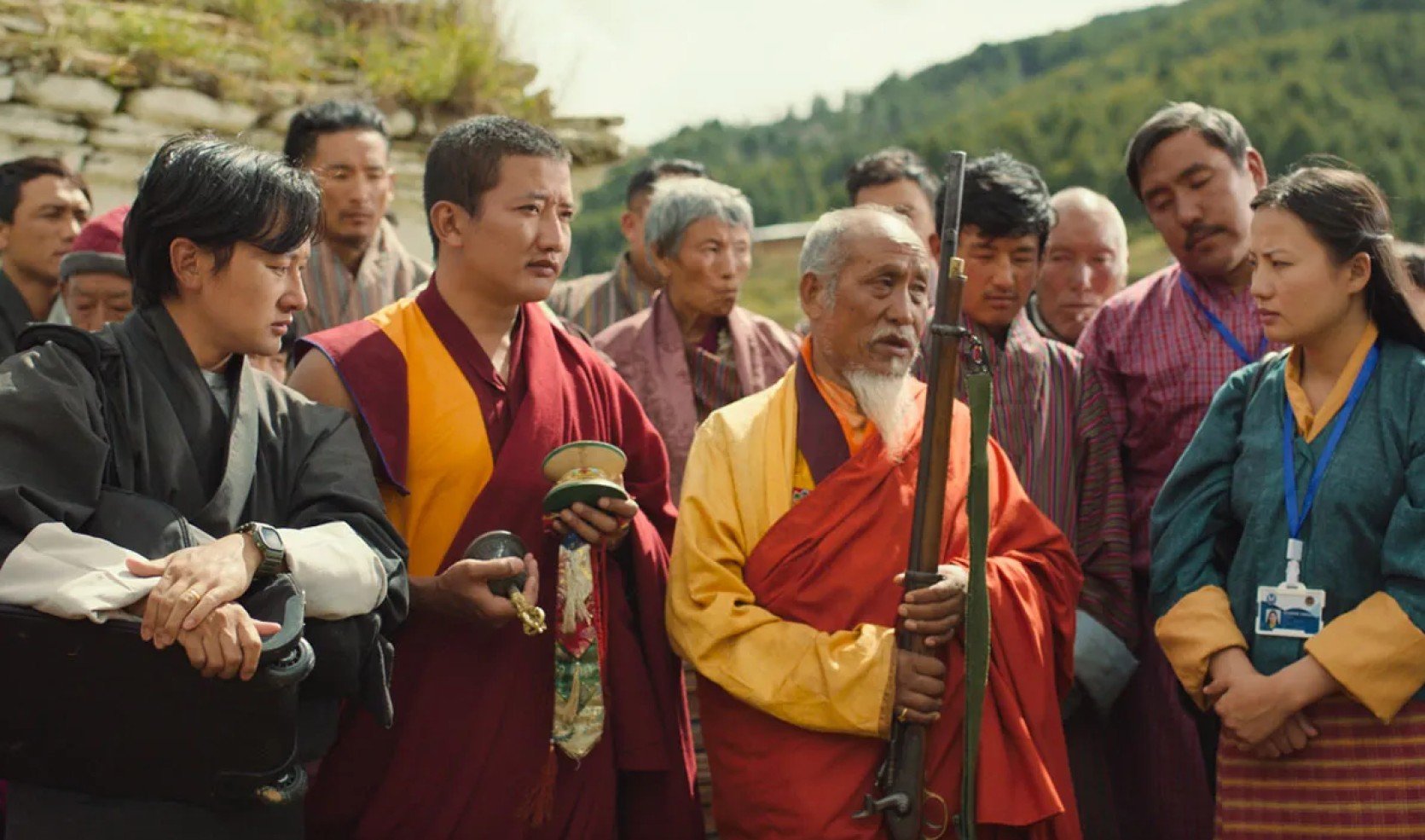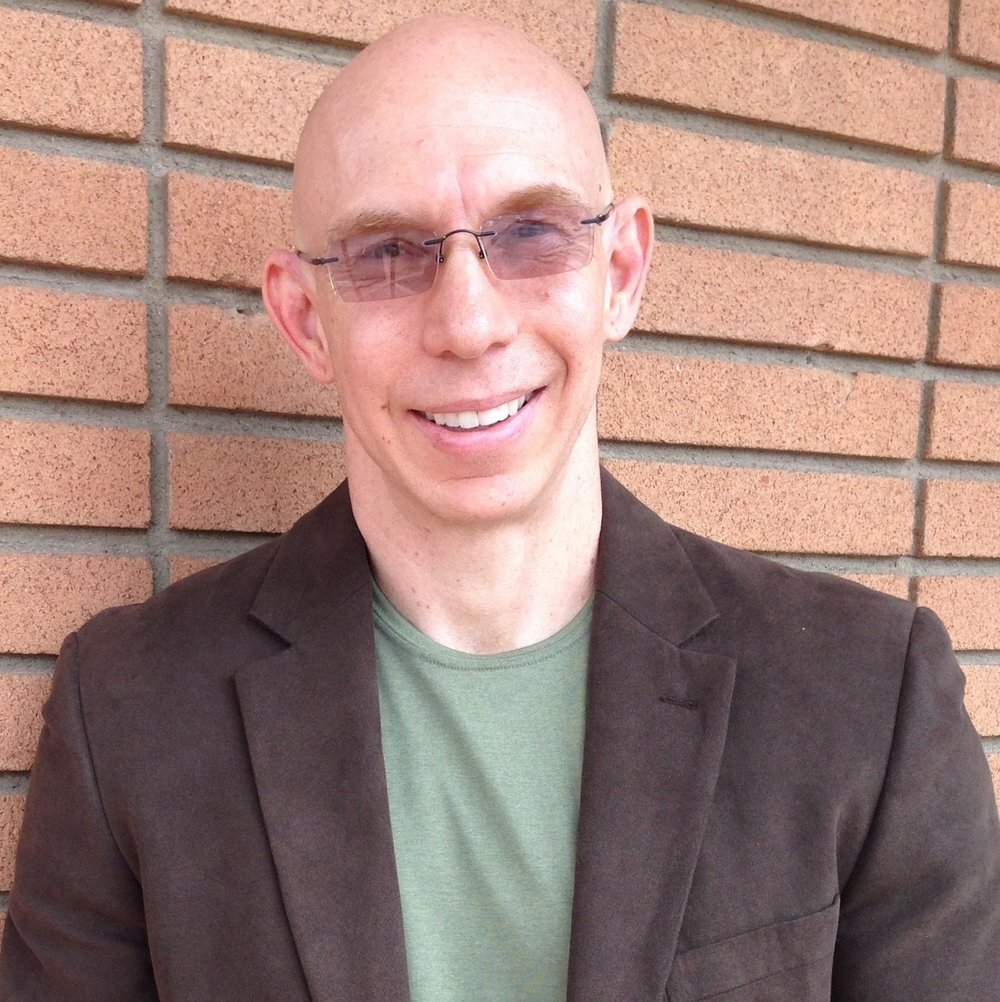Directed and written by: Pawo Choyning Dorji
Starring: Tandin Wangchuk, Tandin Sonam, Harry Einhorn, and Deki Lhamo
Runtime: 107 minutes
‘The Monk and the Gun’: Dorji’s thoughtful approach will fire up audience applause
“You don’t think he’s going to kill anyone. He’s a monk, right?” – Ron (Harry Einhorn)
“I don’t know, Man. We live in strange times.” – Benji (Tandin Sonam)
Director/writer Pawo Choyning Dorji’s film isn’t strange but beautifully eccentric.
Over a deliberately casual pace of 107 minutes, “The Monk and the Gun” introduces the brawny themes of politics and Western influences on the genial, gentle community of Ura, a secluded town in Bhutan. Through comedy, dramatic theatre, and – yes - some palatable tension, Dorji delivers powerful, persuasive messages through exceptionally thoughtful storytelling.
The screenplay’s relaxed tones and cinematographer Jigme Tenzing’s sweeping, wide shots of the peaceful, rolling countryside entice us into warm pleasantries of a down-to-earth existence, one without the hubbub of noisy industry or distracting media memoranda that gleefully promotes conflict and engenders consternation. Still, this unassuming Bhutanese community offers answers to some complex questions about the human condition.
Bhutan, with a population of about 800,000, is the size of Massachusetts and Connecticut combined, and it’s sandwiched between two behemoth authorities, India and China.
Set in 2006, Bhutan is on the brink of turning from monarchy rule toward democratic reforms, as well-intentioned officials descend on the unsuspecting village of Ura and attempt to hold – with the help of some eager townsfolk – a mock election as a trial run.
A hey-let’s-see-how-this-goes exercise.
However, a voter-driven election is as foreign to Ura residents as a paper route to a Manhattan debutante.
Simultaneously, the Internet and television have also arrived, and combined with the upcoming vote, Dorji sprinkles in distinctly memorable moments of observational humor as the local populace reacts to this new stimuli.
For instance, determining one’s date of birth during the registration process becomes problematic for one potential voter, and Tashi (Tandin Wangchuk) – the monk noted in the movie’s title – guesses at the definition of the never-heard-before word “election” in the most surprising of fashions. Speaking of fashion, TV is now a coveted science-fiction staple, as 10 to 15 Bhutan citizens huddle around a coffee shop and stare at the square box’s magnificence as U.S. suburban families did during the 1950s.
In fact, a particular British movie spy – born into cinema in 1962 – becomes the object of the group’s gaze.
Meanwhile, a local lama observes the upcoming sweeping changes in Bhutan and asks Tashi, “Can you get me guns?”
Why would a lama bear arms? Do desperate times call for extreme measures?
Well, our young disciple follows his wishes as Tashi treks to the house of an elderly man who possesses a rifle from the U.S. Civil War, one that an American collector (Einhorn) covets as well.
The race to retrieve this gun commences, but not in a “The Cannonball Run” (1981) style.
Tashi strides on foot while a local, Benji, chauffeurs Ron in his compact burgundy Suzuki Quick Silver, a Fiat-sized vehicle – with four doors, mind you – that calmly and coolly saunters along Ura’s one-lane, winding dirt roads, as the occasional wandering dog trots from the other direction.
Throughout the film, Pawo volleys between the struggles of an election and possessing a specific gun as the semi-irresistible forces of Western culture knock on Bhutan’s door, step inside, reach into the refrigerator, and plunk down on the couch as potentially permanent guests.
In the house of Bhutan, these macro collision points unfold with delicate but profound individual realizations, including a mother’s (Deki Lhamo) frank concern about the potential cultural losses on her elementary-school-aged daughter.
Some may view the Bhutanese as a simple community whose lives can only be improved with democracy, the Internet, and television, but on “The Monk and the Gun” IMDb page, Dorji explains in an interview that the film is “a celebration of the quality of innocence.”
He adds, “As we embraced (democracy), we are suddenly told by the modern world that being innocent is being ignorant. With this film, I wanted to show there’s a difference between innocence and ignorance.”
This movie critic votes “Yes.” Dorji certainly accomplishes his wish, as moviegoers should be fired up with applause after experiencing “The Monk and the Gun”.
Jeff’s ranking
3.5/4 stars














